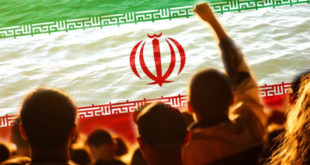Despite the West’s growing suspicions about China, its role in the Western Balkans is likely to become even more central in the post-COVID-19 era.
The global public has never talked as much about China as it has during the COVID-19 pandemic. COVID-19 struck China first, causing mayhem in Hubei Province. China was also the first country to put the outbreak under control, and the only major economy to record positive economic growth in 2020.
As the virus spread globally, China gained importance as a leading exporter of protective equipment, and China’s pharmaceutical companies were among the few in the world to produce a vaccine against COVID-19, making it a key player in the global inoculation drive.
However, the coverage of China in global debates during the pandemic has been far from value-neutral. Relations between the West and China were already getting tenser before COVID-19, to the point where some authoritative voices spoke about the emergence of a new Cold War.
Any news about China and its global role during COVID-19 have thus been interpreted primarily through the lens of the global balance of power and the trajectory of the global political economy. At the same time, however, a number of political actors around the world have also seen China and potential relations with it through the lens of the national emergencies caused by the pandemic and their own tangible needs.
 Eurasia Press & News
Eurasia Press & News


